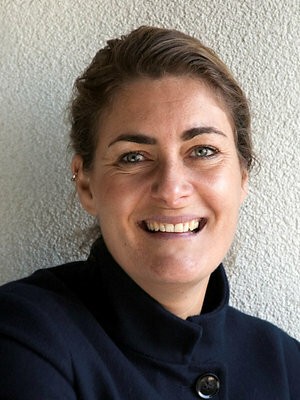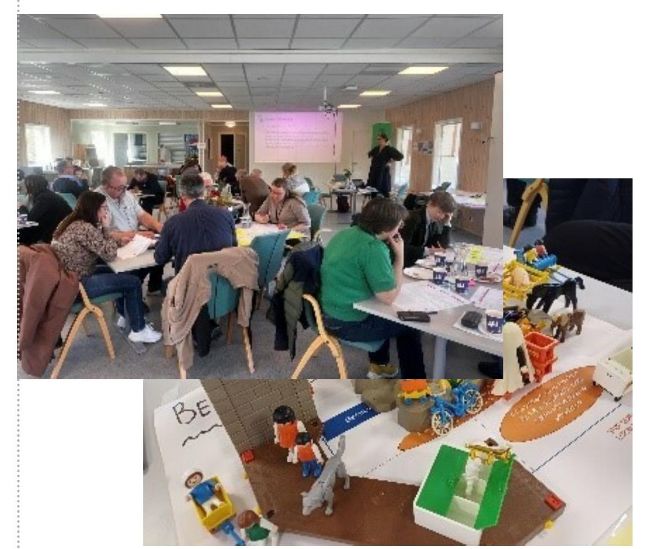Changing the narrative: accepting shrinking for innovative planning in rural areas

Ulla Higdem

Windy Kester Moe
Decline often is seen as a "stigma", and current theories and policies can give the impression the only way of development is growth, says Professor Ulla Higdem at Inland Norway University of Applied Sciences (INN). Growthoriented planning perspectives hinder the development of other proactive strategies to handle the decline. Higdem states, "Population growth is not a prerequisite for development".
RURALPLAN is a research, development and innovation project aiming to produce evidence on how strategic planning regarding rural areas responds to shrinking, leading to a model for knowledgebased strategic planning and policymaking.
Democratic planning processes
RURALPLAN facilitates democratic planning processes with a broad participation, where realistic understanding of the conditions, including population development, is the foundation. Researchers at Inland Norway University of Applied Sciences have already developed a model for use in such knowledge-based strategic planning and policy formulation in rural areas. The model is called the Rural Planning and Innovation Lab (RUPIL), and is now tested within the framework of RURALPLAN in Norway, Sweden and Switzerland.
The RUPIL model is based on a well-established innovation methodology, but it is novel to systematically incorporate this methodology into a planning context.
In RUPIL, we will expand on the basic methods with a transdisciplinary approach by placing a greater emphasis on the following:
1. engaging societal actors in planning to mobilise more resources for development,
2. having a knowledge-based and realistic approach, 3. developing new roles for politicians,
4. developing processes to legitimise other social objectives, and
5. developing innovative processes for searching for alternative goals, strategies, and solutions.
The research team has conducted an analysis of the outcomes and implications of the present research and policy actions. In addition, data on shrinkage in the stakeholder's area with statistical variables within geography, demography, and economy, is collected, analysed, and used to discuss what type of shrinking characterises each of the selected regions.
both the methodological experiences and the co-created results from the participation processes in RURALPLAN can be useful to empower rural planners and it can enable rural areas throughout Europe to plan within a new and realistic demographic perspective
The findings are summarised in Report RURALPLANMethodological framework and knowledge, which forms the basis for initiating the RUPIL process and workshops. The report includes a literature review of planning in areas experiencing demographic challenges, the quantitative analysis of the cases, and the methodology of RUPIL, and is now published on the ESPON website.
Shrinkage in the stakeholder's area
Albula's population is stable but ageing, with an increase in elderly residents. It has a significant service sector and low income compared to Graubünden, with good urban and transport access. Malung-Sälen's population decline has stopped, featuring high income and numerous second homes but poor urban access.
Os is experiencing active population decline, with a changing demographic, a large industrial sector, and poor urban access.
In Albula and MalungSälen, second homes significantly impact population patterns.
Workshops
As innovative planning is interactive (innovations are most often created through collaborations between diverse actors) and the output is co- produced, the RUPIL model includes a series of workshops. In April, the Norwegian research team conducted the first workshop in the municipality of Os, in Inland Norway.
This municipality (1,891 inhabitants in 2023) historically has a low population growth, but since 2011, Os has experienced a significant decline and a low percentage of people of working age. Os is also currently in the process of a new master plan. The municipality states that the planning objectives should be about "a good life in Os", where demographic development is not the focus.
About 25 local politicians, third sector volunteers, business people, and municipality employees met one day for the first workshop in Os. Together they defined population composition, housing and quality of life, regional cooperation, involvement of the business sector, and the municipality as an organisation, as topics to address. In a creative process, the group came up with several possible solutions to every challenge. In the second workshop, they prototyped their ideas either as a physical representation, by storyboards, drawings, or maps to test their ideas on each other.
It is good to see so much engagement around this process. This is the most important job we do this year, and it also serves several purposes for the municipal council?, states Marit Gilleberg, CEO in the Os municipality.
In the third workshop, the groups will focus on the implementation of the developed ideas and solutions. Whether and how Os municipality will implement the RUPIL results into their master plan or other plans is up to the municipality to decide.
The road ahead
The RUPILprocess in Os, Norway, will soon be wrapped up, as the workshops in the Albula region, Switzerland, and MalungSälen municipality in Sweden start in June. The research group expects to analyse its experiences and findings after the summer and will deliver a policy brief with recommendations by the end of November. RURALPLAN's final delivery is a report, which is due before Christmas.
"We hope that both the methodological experiences and the cocreated results from the participation processes in RURALPLAN can be useful to empower rural planners and it can enable rural areas throughout Europe to plan within a new and realistic demographic perspective", Higdem concludes.
ESPON RURALPLAN will respond to the policy needs of Innlandet County Authority (lead stakeholder), Norway, the State Secretariat for Economic Affairs SECO, Switzerland, the County Administrative Board of Dalarna, Sweden and Euromontana, the European association of mountain areas. The research team for RURALPLAN consists of researchers from INN, Linköping University in Sweden, and the Swiss Centre for Mountain Regions, in addition to stakeholders from the three countries.
Ulla Higdem and Windy Kester Moe (Inland Norway University of Applied Sciences)

//images from author